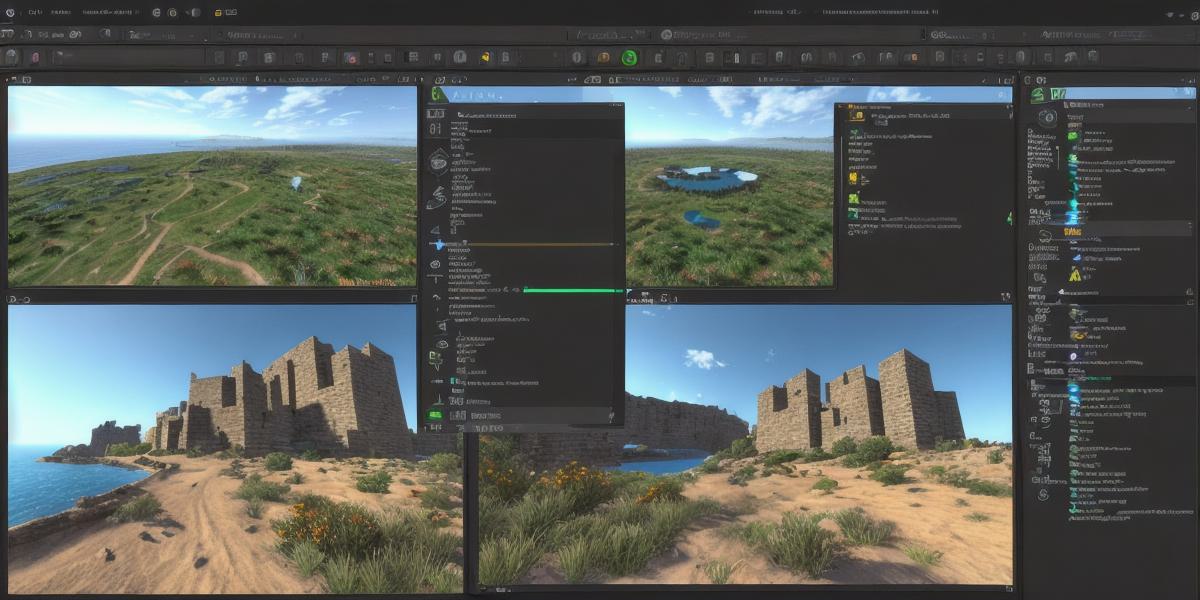Are you a programmer looking to switch up your career and enter the exciting world of game development? Look no further! In this article, we will provide you with all the information you need to get started on your journey to becoming a successful game developer. We will cover everything from the basics of programming for games to best practices for creating engaging and immersive experiences.
Why Game Development for Programmers?
As a programmer, you already possess many of the skills needed to excel in game development. Your background in coding makes you well-versed in problem-solving and logical thinking, both essential traits in the world of games. Additionally, programming for games requires a deep understanding of algorithms, data structures, and other fundamental computer science concepts.
However, game development is not just about coding. It also requires creativity, attention to detail, and a willingness to learn new technologies. This makes it the perfect career path for programmers who are looking to challenge themselves and push their limits.
Getting Started: The Basics of Programming for Games
Before you can start creating your own games, you need to have a solid understanding of programming concepts. There are many programming languages used in game development, but C++ and Unity are two of the most popular.
C++ is a powerful and fast language that is widely used in game development due to its low-level control over hardware resources. However, it can be challenging to learn and requires a strong understanding of computer science concepts.
Unity is a popular game engine that uses C as its primary programming language. It is easier to learn than C++ and has a larger community of developers who can provide support and guidance. Unity also offers many tools and resources to help you get started, including tutorials, documentation, and sample projects.
Once you have chosen your programming language, it’s time to start learning the basics of game development. There are many online courses and tutorials available that can teach you everything from the fundamentals of programming to advanced techniques for creating engaging games. Some popular resources include Udemy, Coursera, and edX.
Best Practices for Creating Engaging Games
Now that you have a solid understanding of programming concepts, it’s time to start thinking about best practices for creating engaging games. Here are some tips to help you get started:
- Know Your Audience: Before you start designing your game, it’s important to know who your target audience is. What age range do they fall into? What kind of games do they like to play? Answering these questions will help you create a game that resonates with your players and keeps them coming back for more.
- Keep It Simple: Game development can be complex, but it’s important to keep things simple. Avoid overwhelming players with too many options or features. Instead, focus on creating a streamlined and intuitive experience that is easy to navigate.
- Be Patient: Creating a great game takes time. Don’t rush the process. Take the time to test your game thoroughly and gather feedback from beta testers before releasing it to the public.
- Use Sound and Visuals: Sound and visuals are crucial in creating an immersive experience for players. Make sure to use high-quality sound effects and graphics that enhance the overall atmosphere of the game.
- Stay Up-to-Date: The world of game development is constantly evolving, so it’s important to stay up-to-date with the latest trends and technologies. Attend conferences, read industry publications, and participate in online forums to stay informed about the latest developments in the field.

Real-Life Examples: Successful Game Developers
Now that you have a better understanding of the basics of programming for games and best practices for creating engaging games, it’s time to look at some real-life examples of successful game developers.
- Shigeru Miyamoto: Shigeru Miyamoto is a Japanese video game designer and producer who is widely considered one of the pioneers of the video game industry. He created many iconic games, including Super Mario Bros., The Legend of Zelda, and Pokemon. Miyamoto’s success can be attributed to his ability to create simple yet addictive gameplay experiences that resonate with players of all ages.
